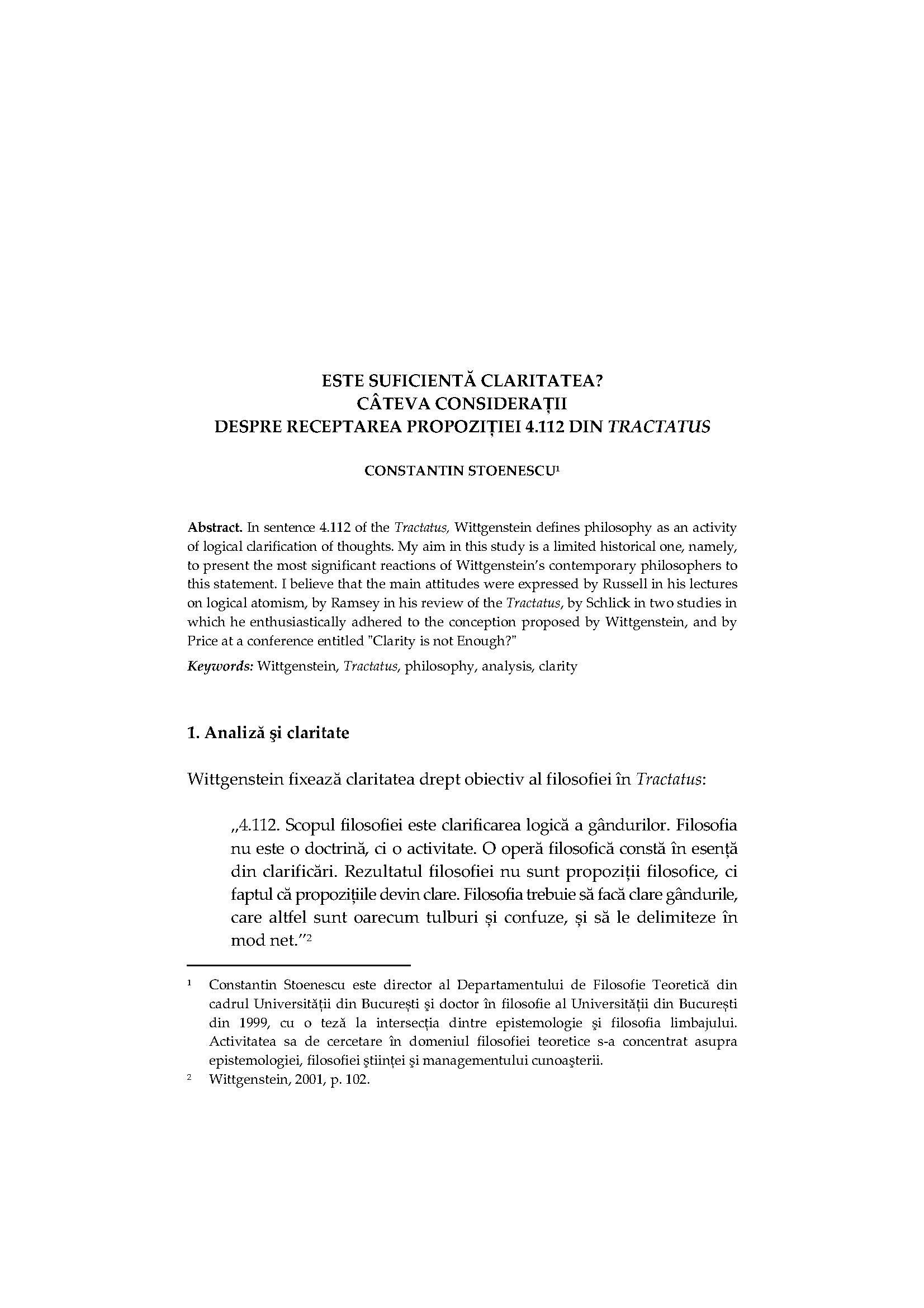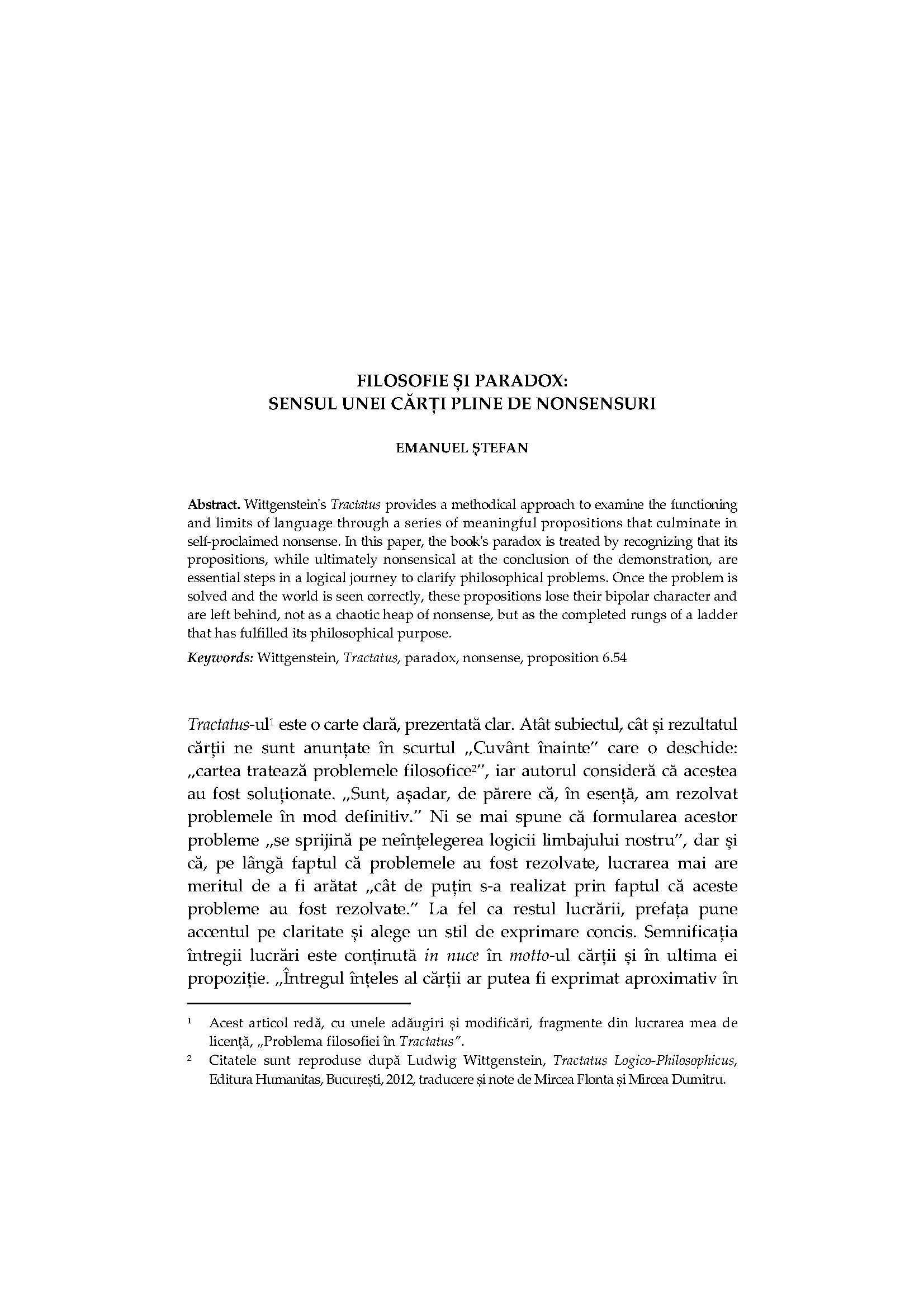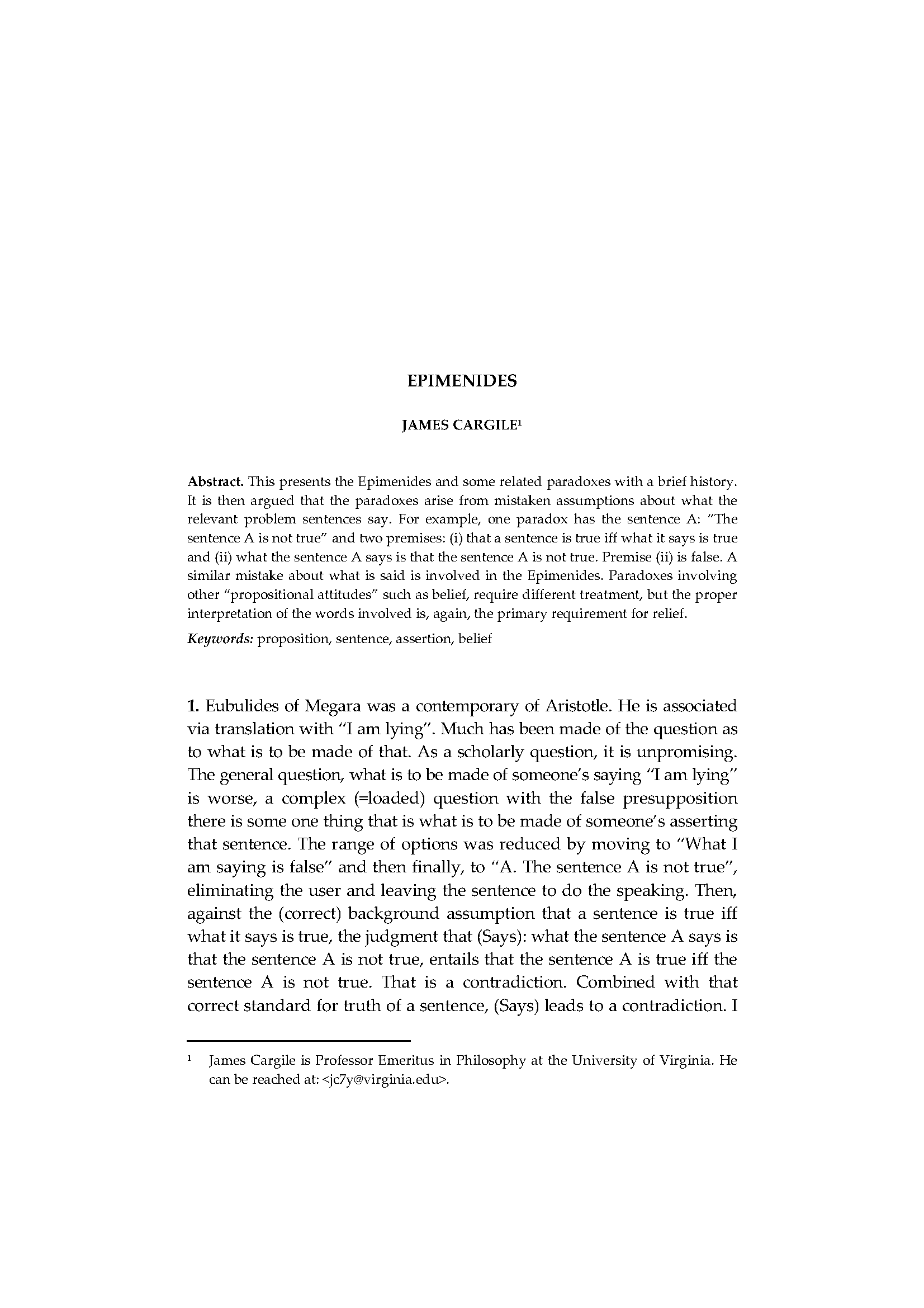Vol. 14 No. 2 (2020): Revista Română de Filosofie Analitică, Volumul XIV, Nr.2/2020

The journal publishes articles in analytic philosophy broadly construed. Topics range from logic, philosophy of mathematics and epistemology to metaphysics, philosophy of biology, philosophy of cognitive science and philosophy of language, but is not limited to these areas.
Full Issue
Articles
-
ESTE SUFICIENTĂ CLARITATEA? CÂTEVA CONSIDERAȚII DESPRE RECEPTAREA PROPOZIȚIEI 4.112 DIN TRACTATUS
Abstract
In sentence 4.112 of the Tractatus, Wittgenstein defines philosophy as an activity of logical clarification of thoughts. My aim in this study is a limited historical one, namely, to present the most significant reactions of Wittgenstein’s contemporary philosophers to this statement. I believe that the main attitudes were expressed by Russell in his lectures on logical atomism, by Ramsey in his review of the Tractatus, by Schlick in two studies in which he enthusiastically adhered to the conception proposed by Wittgenstein, and by Price at a conference entitled "Clarity is not Enough?"
-
FILOSOFIE ȘI PARADOX: SENSUL UNEI CĂRȚI PLINE DE NONSENSURI
Abstract
Wittgenstein's Tractatus provides a methodical approach to examine the functioning and limits of language through a series of meaningful propositions that culminate in self-proclaimed nonsense. In this paper, the book's paradox is treated by recognizing that its propositions, while ultimately nonsensical at the conclusion of the demonstration, are
essential steps in a logical journey to clarify philosophical problems. Once the problem is solved and the world is seen correctly, these propositions lose their bipolar character and are left behind, not as a chaotic heap of nonsense, but as the completed rungs of a ladder that has fulfilled its philosophical purpose. -
EPIMENIDES
Abstract
This presents the Epimenides and some related paradoxes with a brief history. It is then argued that the paradoxes arise from mistaken assumptions about what the relevant problem sentences say. For example, one paradox has the sentence A: “The sentence A is not true” and two premises: (i) that a sentence is true iff what it says is true and (ii) what the sentence A says is that the sentence A is not true. Premise (ii) is false. A similar mistake about what is said is involved in the Epimenides. Paradoxes involving other “propositional attitudes” such as belief, require different treatment, but the proper interpretation of the words involved is, again, the primary requirement for relief.






